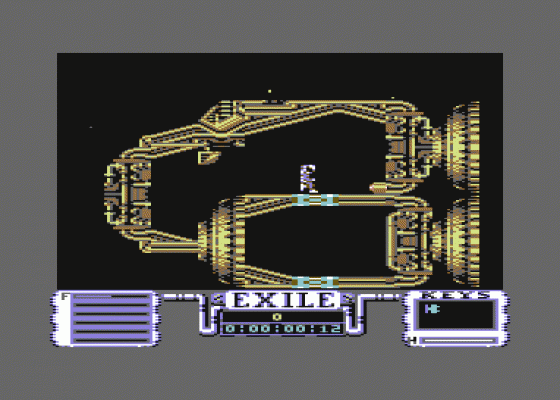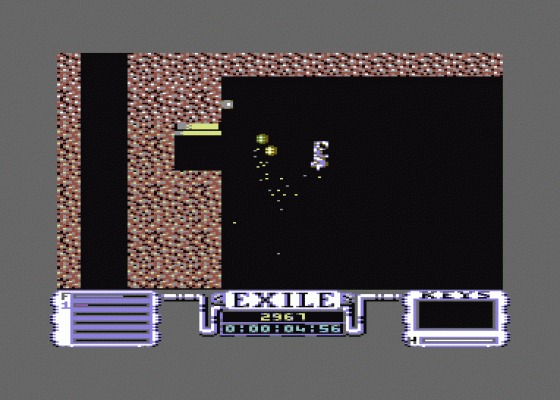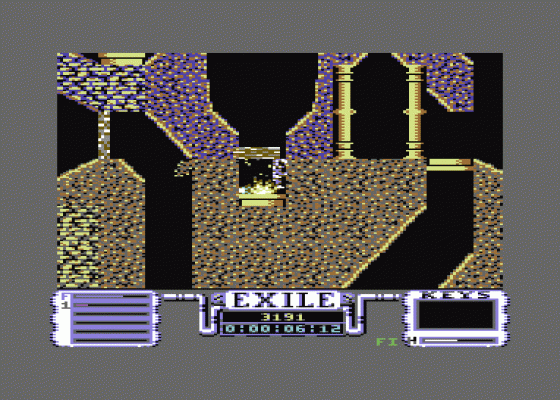
Commodore Format
 1st July 1991
1st July 1991
Author: Gary Penn
Publisher: Audiogenic
Machine: Commodore 64
Published in Commodore Format #010
Audiogenic have pulled out all the stops to bring the C64 an absolutely out of this world arcade adventure. Our reviewer dons his pressure suit and plays a game with frogs, catacombs and not a little gravity
Exile
When Triax was a nipper he didn't want to be a train driver or an astronaut like the other kids in his class, oh no. Triax wanted to be a mad scientist specialising in obscene genetic experiments with animals and human beings (the kind our Ed likes!).
And that's exactly what he's doing now, over 140 years later, on the planet Phoebus. What a git. But it gets worse... Triax was creating a race of killer maggot creatures to destroy the universe - until your space marine mates arrived and unwittingly donated their bodies to science.
Triax's laboratory lies deep below the planet's surface, on which your mission begins. Standing between you and the destruction of Triax and the rescue of your chums is a labyrinthine cavern network, filled with the results of Triax's experiments, robotic security guards or sorts, and dozens of natural and Triax-made obstacles.
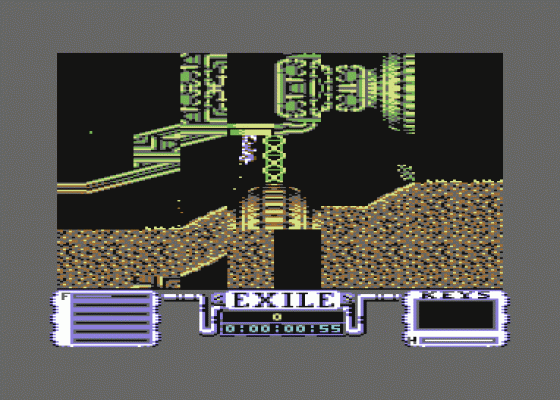
So that's the story. The action's considerably more involved. In fact, there's just so much to see and do in Exile that it would take more space than is possible here to even begin to explain all it all. But here goes...
Exile's such a doozy because everything about it centres around physical forces. Your on-screen alter ego can interact with pretty much anything - and pretty much everything tries to interact with your on-screen alter ego. Every object has not only its own function but size and mass which determines how it's used. Every creature has character and does its own thing - some can be shot or burned or picked up or used as a means to an end of a problem. Some simply get in the way.
Because of this, the puzzles aren't as clearly defined as those in other arcade adventures. There's by and large more than one solution to every problem, and the order in which the puzzles are tackled is fairly open-ended too.
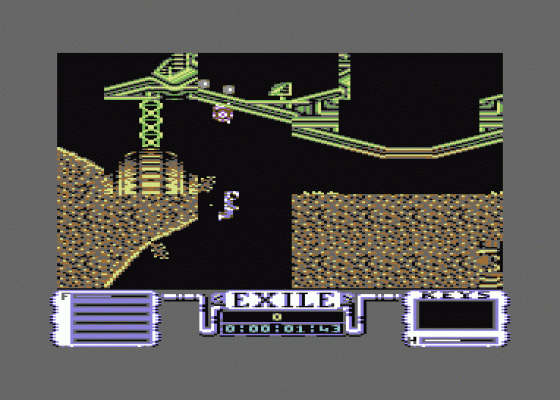
The star of Exile is the most versatile computer character ever seen. He walks, He runs. He jumps. And he ducks. Nothing new there, granted. But thanks to his rather swish space suit, this dude's repertoire is more impressive still. Strapped to his back is a jet-pack, which allows him to thrust about in any direction - unless there's some preventative force such as one of the many strong winds found around the planet. The suit is also capable of supporting handy equipment galore, including a jet-pack booster, a protective shield of sorts and four types of gun, each with definable trajectories within a 180 degree forward-facing field (collected items are thrown in much the same way).
Every item has its own energy supply, boosted by collecting power packs. Even if there are none in sight, all is not lost... If, say, the jet-pack needs energy and one of the guns has plenty, you can always transfer it. As well as having four pockets for the storage of any items small or light enough to fit, the suit also has a personal teleportation system. By flicking a switch, your co-ordinates are remembered - up to four positions are, in fact. Now, when the mood takes you, you can teleport to the last registered position. This feature actually has more use than is at first apparent, as you will see.
Although Exile isn't perfect, it is the most gripping game I have played in years - since The Sentinel in fact - and it's intrinsically the most exciting concept I have ever seen ever. I'd love to see more of the same, perhaps with a tighter design, which would show off the system in a more obvious light. The possibilities are endless. The physical and chemical reactions which are part and parcel of this system could even be used to exceptional effect in education. The user would learn through having fun, which is the best way to take on board information. You could alter the variables such as gravitational pull and introducing different sized objects and masses and viscosities of fluid and chemical compositions and see what happens. Just imagine: you'd have, say, an object or better still a creature composed of potassium. You'd pick it up and take it to a pool of water. Mmm, what would happen if we dropped out load, so to speak, in this fluid? FZZZZZZZZZZZ!
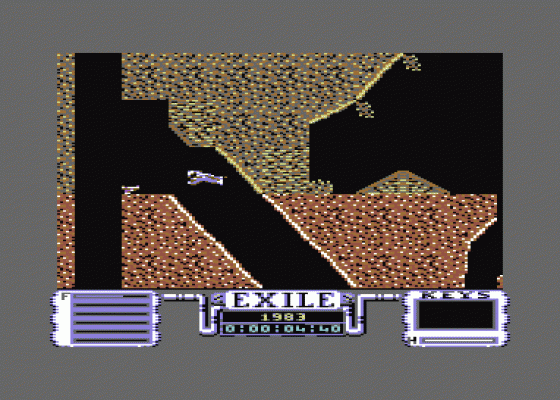
A memorable reaction, not only because the creature's frothing around like - well, Potassium in water - but also because it was the user's own doing. So it's not perhaps the best example in the world, but it serves to illustrate the potential.
Exile represents the future of arcade adventures. It's as simple as that.
The Uppers
P. The RAM Save smooths over any rough edges.
P. The atmosphere is often second to none, partly due to the believable physics but also due to the small particles for explosions, splashes, flames, jet-pack emissions et al
P. Every creature and events has its own sound
P. A huge map with many surprises and puzzles
P. A liberal sprinkling of blasting action
P. Plenty of scope for experimentation, without even tackling the task in hand...
P. ...And all in a single load!
The Downers
N. Rare minor scenario flaws.



